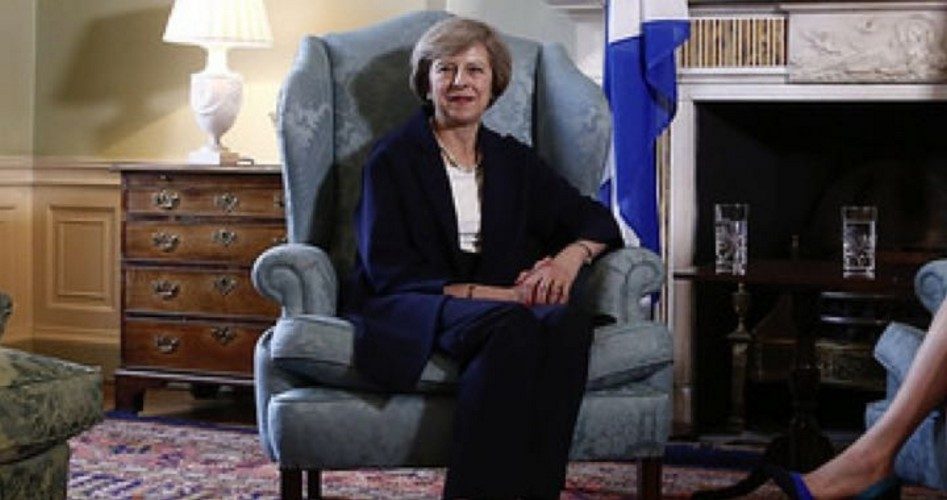
U.K. Prime Minister Theresa May (shown) has survived a vote of no confidence in the House of Commons today as votes of members of her own Conservative (Tory) Party indicated that they did indeed have confidence in the prime minister.
Sir Graham Brady announced the result a short time ago to loud applause among supporters of May. “The result of the ballot held this evening is that the Parliamentary does have confidence in Theresa May as leader of the Conservative Party.”
Tories voted 200 to 117 to allow May to remain on as prime minister for at least one more year.
Earlier in the day, May pledged that she would not seek reelection in 2020, easing concerns among some in the Conservative Party that her Brexit plan had damaged her credibility to the point of damaging their chance to retain a Parliamentary majority moving forward.
“This has been a long and challenging day, but at the end of it, I’m pleased to have received the backing of my colleagues in tonight’s ballot,” May told the press after the results were announced. “Whilst I’m grateful for that support, a significant number of colleagues did cast a vote against me and I’ve listened to what they said.”
“Following this ballot, we now need to get on with the job of delivering Brexit for the British people and building a better future for this country; a Brexit that delivers on the vote that people gave, that brings back control of our money, our borders and our laws; that protects jobs, security and our union; that brings our country back together rather than entrenching division. That must start here in Westminster with politicians on all sides coming together and acting in the national interest.”
A vocal Tory opponent and one of the leaders of the no-confidence vote against May, Jacob Rees-Mogg, is hoping that May follows the example of Margaret Thatcher, who also survived a no-confidence vote but resigned shortly after that. Rees-Mogg told Sky News, “I think we have a choice: Either she behaves like Margaret Thatcher … or she behaves like John Major and leads the Conservative Party to a terrible defeat. Those are the choices facing her and the party.”
While Rees-Mogg clearly wasn’t thrilled with the result of the vote, he did allow room for some conciliation with May on her plan to withdraw from the EU — just not on the Irish Backstop issue. “Well, not unless she can get rid of the backstop. If she can take the backstop out, there are bits of the withdrawal agreement that I don’t like, but I’m willing to compromise.”
And despite EU pronouncements that negotiations are over for now, May vows to pursue concessions from the EU on just that issue. “For my part, I’ve heard what the House of Commons said about the Northern Ireland backstop. And when I go to the European Council tomorrow, I will be seeking legal and political assurances that will assuage the concerns that members of Parliament have on that issue.”
Brexit, itself, is in nearly as much turmoil as it was prior to today’s vote. The EU has already signaled their reticence to relent on the Irish Backstop issue and unless that can be worked out to Parliament’s satisfaction, the current deal simply doesn’t have enough votes to pass.
But today’s vote does mean that Theresa May will continue to be the captain who guides the ship of Brexit through the politically murky waters ahead.
Photo of Theresa May: gov.scot




